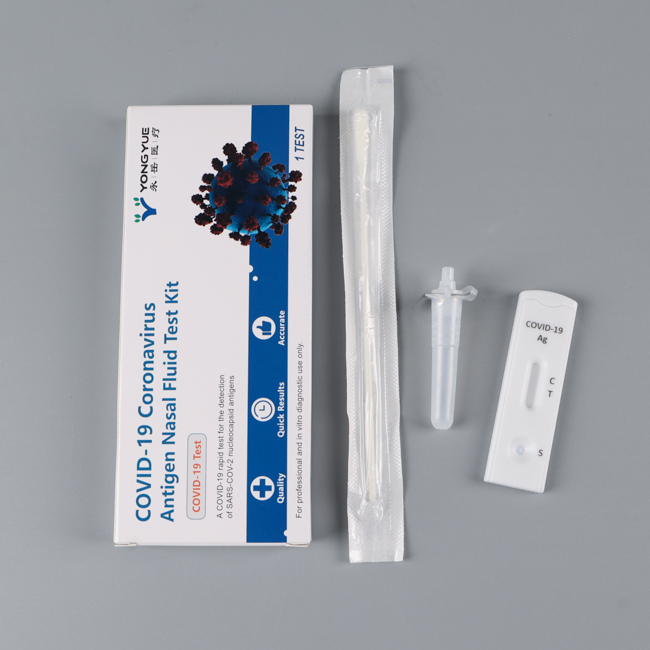With epidemic of the noval coronavirus COVID-19 (SARS-CoV-2) out-breaking currently, many biotech companies are sourcing lab plastic consumables worldwide to control the spreading. We also received many inquiries from different countries. But most inquiries are mainly for some items of us. This page is to help the researchers who need to find out our products that used in COVID-19 quickly, hope it helps.
However, any your inquiries are welcome, please never mind to contact us!
Antigen Extraction,Acid Extraction Tubes,Nasopharyngeal Swab,Antigen Rapid Test Cassette,Test Cassette Yong Yue Medical Technology(Kunshan) Co.,Ltd , https://www.yonyuemedicalcare.com
Hard milling tool selection
Three types of milling tools are commonly used in mold shops: solid carbide end mills, indexable carbide inserts, and newly developed indexable ceramic inserts. These three tools each have their own advantages and disadvantages in different machining applications.
(1) Solid carbide end mills usually require precision grinding and coating treatment, which are quite expensive. When the tool becomes dull, it must be reground and recoated. However, the re-repaired end mills often have lower cutting performance than new ones.
(2) The second type of hard milling tool is equipped with an indexable carbide insert. In most cases, the carbide grades and insert geometry of such inserts are not designed for hard milling, so they do not provide optimum tool life and productivity when machining hardened materials.
(3) The third type of hard milling cutters use indexable ceramic inserts, especially whisker-reinforced ceramic inserts. The use of a tooling system with indexable ceramic inserts offers many benefits, including reduced cycle times and reduced machining steps per workpiece. However, the use of such a tooling system requires both the programmer and the operator to rethink the machining process and should pay attention to details that may not be considered when using other tools.
The mold shop uses a complete range of hard milling tools with whisker-reinforced ceramic inserts (including indexable inserts for milling surfaces, cavities and contours) to roughen hardened blanks into one part and in one installation Finishing is completed. Milling cutters with ceramic inserts (from large face milling cutters to small diameter end mills with indexable ceramic inserts) enable safe high-speed milling. When using high-speed cutting with a ceramic insert milling cutter designed for hard milling, it is important to ensure the safety of the blade clamping.
High-speed milling cutters are developed based on the safety and reproducibility of ceramic insert milling speeds. The whisker-reinforced ceramics currently used have a melting point in excess of 2000 ° C, which means that the ceramic insert can be processed at a cutting speed that is much higher than the failure point of the cemented carbide insert. In fact, whisker-reinforced ceramic inserts work well at temperatures above the melting point of cemented carbide inserts. Cooling fluids are not recommended for hard milling with ceramic inserts, but air cooling is recommended, especially in pocket milling to avoid secondary cutting of the chips. Reducing the use of coolant and waste disposal costs is also an added benefit of using ceramic inserts for hard milling.
Use ceramic blades to reduce processing costs
Hard milling with ceramic inserts can help mold shops reduce production costs in a number of ways. First, you can replace multiple processes with one operation. When hard milling with a ceramic insert, the steel can be quenched and then the workpiece can be milled in a hardened state, replacing the three processes of machining, quenching and reworking. By reducing the time required to install and transport workpieces at different stages of processing, cycle times and improved working paths can be reduced. In addition, rough milling of hardened workpieces with ceramic inserts avoids expensive and time-consuming EDM (Electrical Discharge Machine) machining without the need to make one or more electrodes. 
In order to maintain a competitive edge in today's global economy, moldmakers must continue to produce high quality products in a very short period of time. In order to achieve this goal, advanced manufacturing process technology and cutting tool materials must be developed, so that the mold processing workshop can always be in a competitive position. As one of these advanced manufacturing technologies, hard milling is constantly evolving. In the past few years, due to the limitations of the machine tools and cutting tools at the time, mold manufacturers failed to really use the hard milling process. Today, however, most modern machining centers equipped with high-rigidity, high-speed spindle systems and advanced processors are good at cutting hard materials. At the same time, the advanced CAM software package has a specific machining cycle for hard milling, and a tool path (knife path) function that optimizes tool life is designed.